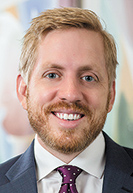Subscriber Benefit
As a subscriber you can listen to articles at work, in the car, or while you work out. Subscribe Now
By Jay Cunningham
As a financial damages expert, one of the most common questions I get when testifying at a deposition or trial is, “Did you follow any standards in forming your opinion?” Until just recently, and depending on my assignment, the answer to this question was not always as easy as one might think. While all CPAs must abide by the American Institute of Certified Public Accountants (AICPA) Code of Professional Conduct (which requires professional competence, due professional care, planning and supervision, and sufficient relevant data), no statements on an authoritative standard existed specifically for those providing forensic services.
Black’s Law Dictionary defines “forensic” as “used in, or suitable to, courts of law or public debate.” While that can mean different things to different people — and it is certainly a vague definition — the AICPA has attempted to help clear things up by issuing its first Statement on Standards for Forensic Services (SSFS 1). SSFS 1, which applies to all AICPA members, member firms and employees of member firms, codifies best practices for litigation and investigation consulting work.
Under SSFS 1, professional forensic services are defined as one of the two following engagements:
Litigation: An actual or potential legal or regulatory proceeding before a trier of fact or a regulatory body as an expert witness, consultant, neutral, mediator or arbitrator in connection with the resolution of disputes between parties. The term litigation used herein is not limited to formal litigation but is inclusive of disputes and all forms of alternative dispute resolution.
Investigation: A matter conducted in response to specific concerns of wrongdoing in which the member is engaged to perform procedures to collect, analyze, evaluate or interpret certain evidential matter to assist the stakeholders (for example, a client, board of directors, independent auditor or regulator) in reaching a conclusion on the merits of the concerns.
SSFS 1 also prohibits expert witnesses in litigation environments from providing opinions pursuant to most contingent fee arrangements. In addition, the new standard provides that a member may not opine about the ultimate occurrence of fraud, a determination made by the trier of fact. While most professionals providing forensic services should already employ these practices, SSFS 1 offers authoritative guidance to those who perform these services.
Though at this time the new forensic standards are relatively thin, it is important to know that they exist. Now, whether you are the one cross-examining the damages expert or are the forensic accountant being cross-examined, there is an answer to the question, “Did you follow any standards in forming your opinion?”
The new standards will take effect for new engagements accepted on or after Jan. 1, 2020, with early adoption permitted.•
__________
• Jay Cunningham, CPA/CFF, CVA, MAFF, is a director in Katz, Sapper & Miller’s Litigation Services Group. He can be reached at 317-452-1428 or [email protected]. Opinions expressed are those of the author.
Please enable JavaScript to view this content.
